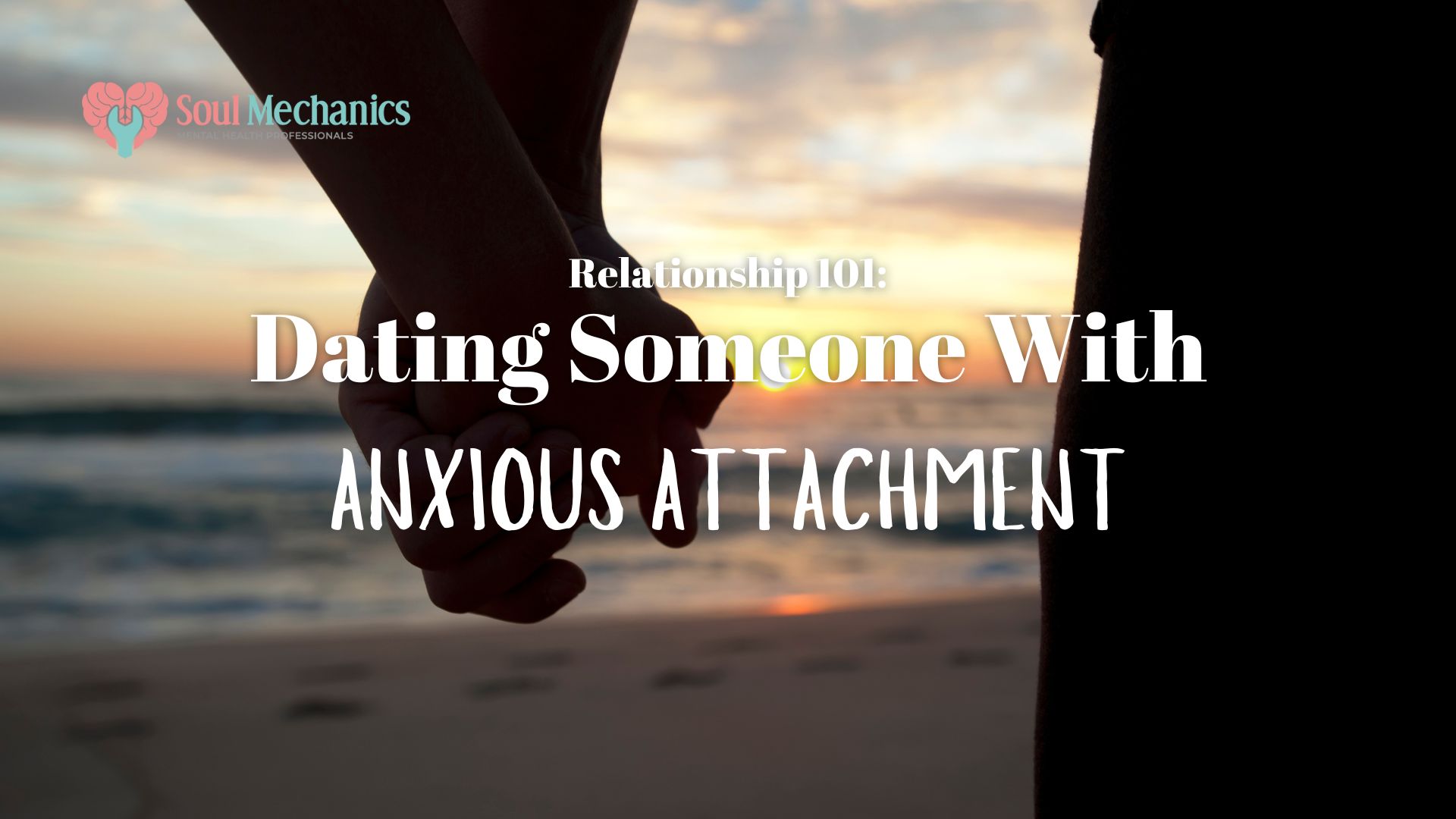Relationship 101: Dating Someone with Anxious Attachment
Relationship 101: Dating Someone with Anxious Attachment

Written By: Kelly Chan Jia Li, Clinical Psychologist (MAHPC(CP)00353)
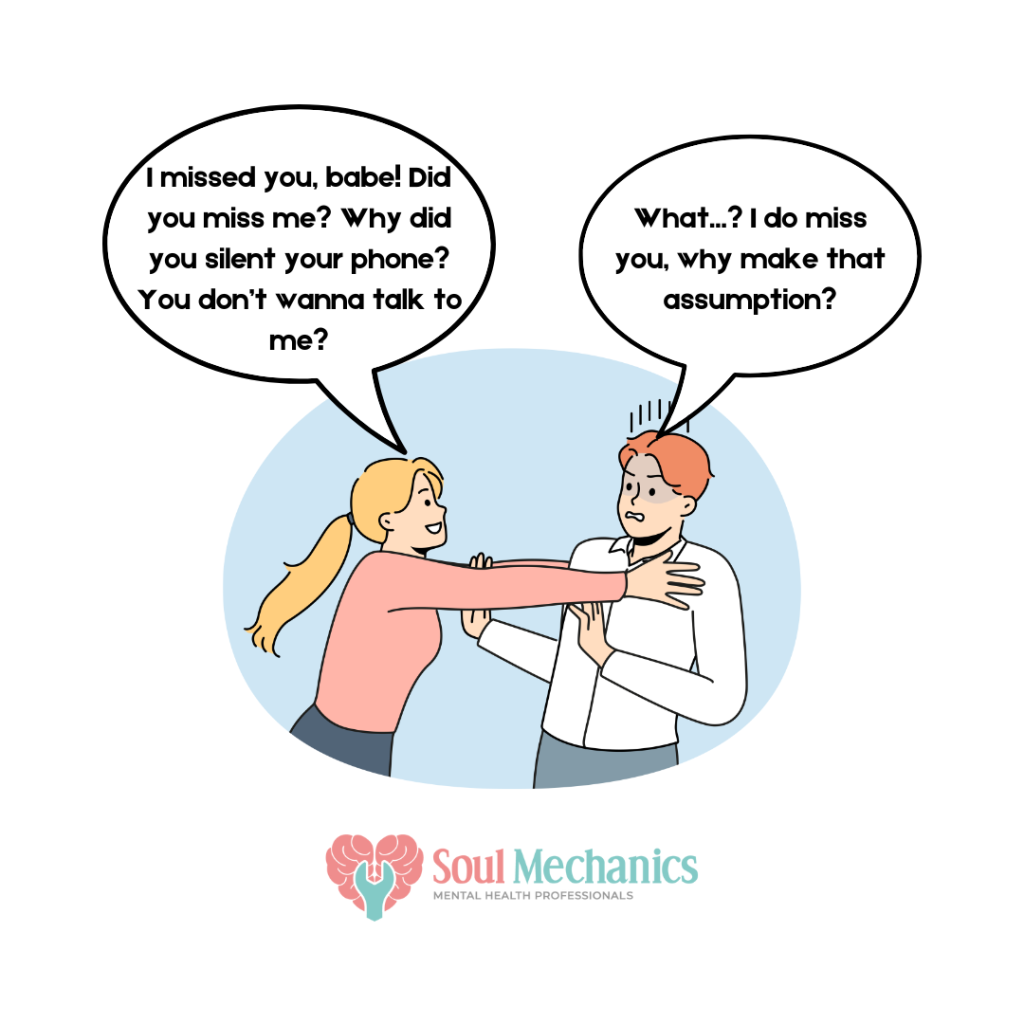
Dating someone with anxious attachment can be both a beautiful and sometimes challenging experience. This attachment style, often rooted in past experiences or early relationships, makes people crave closeness and security intensely but often feel anxious about being abandoned or rejected. When dating someone who tends to feel anxious in relationships, understanding their needs and behaviours can lead to a stronger, healthier connection. Let’s understand anxious attachment better!
What is Anxious Attachment?
Imagine dating someone who often checks in with you throughout the day. If you take a little longer to respond, they may start to feel anxious and worry that something is wrong or that you might be upset with them. Even if they know logically everything is fine, their emotions can tell a different story, which is the hallmark of anxious attachment. This reaction is not necessarily about you; it is often their attachment style showing up.
In simpler terms, anxious attachment is when someone wants closeness in a relationship but often fears their partner might leave or stop loving them. They tend to be more sensitive to changes in their partner’s behaviour, worrying about losing their connection. It is like being on an emotional rollercoaster where the desire for intimacy is strong, but so are the worries. This attachment style often comes from early relationships or past experiences that may have left them feeling insecure about their worth or whether love will stay.
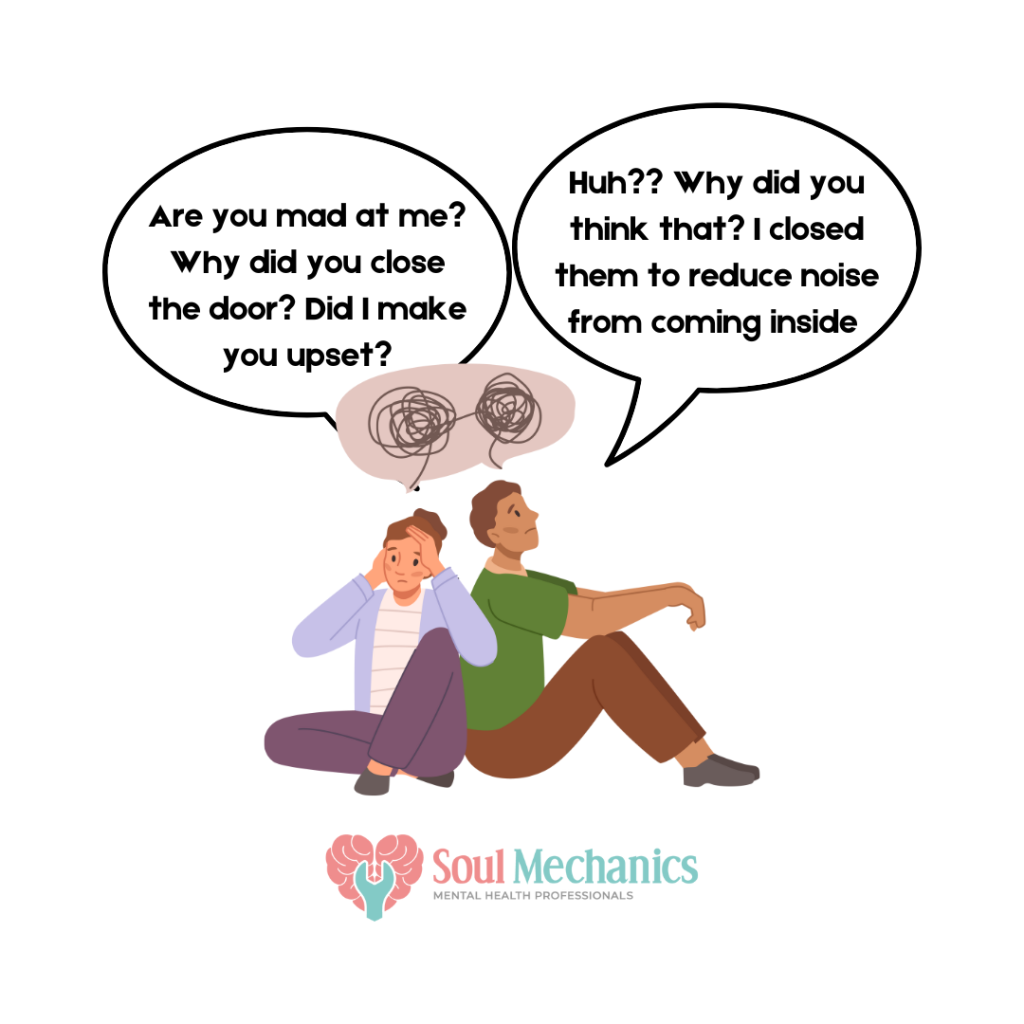
Signs and Behaviours of Someone with Anxious Attachment
If your partner has an anxious attachment style, here are some behaviours you might notice. These behaviours do not make them “needy” or “too much”; they reflect a need for closeness and security.
Seeking Frequent Reassurance
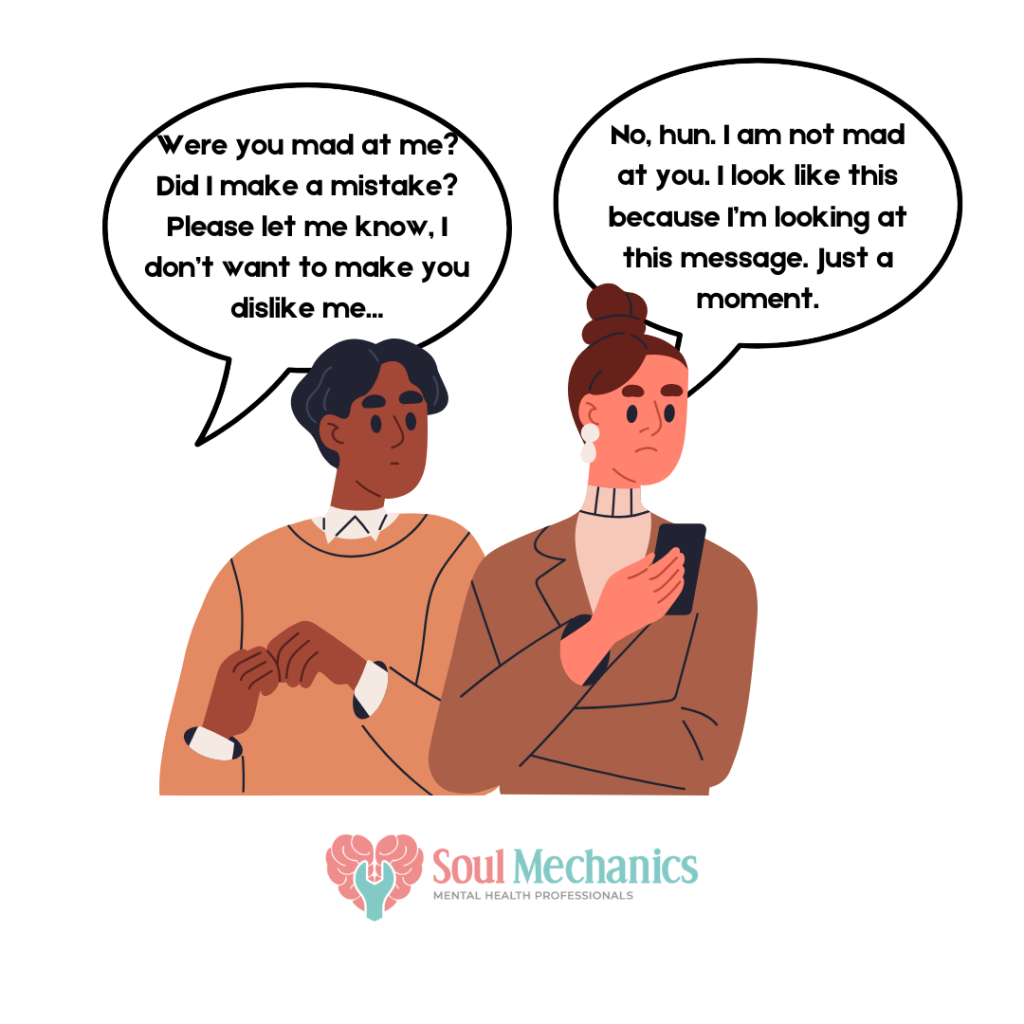
They might frequently ask if you love them, seek validation, or want reminders of your commitment. They might ask questions like, “Do you still love me?” or “Are we okay?” This reassurance helps them feel more secure, even if you have already shown your commitment.
Fear of Abandonment or Rejection
Partners with anxious attachments may constantly worry that you will leave them or lose interest. This fear of rejection can lead them to read too much into small changes in your behaviour or routine, interpreting them as signs that you may be pulling away.
Heightened Sensitivity to Changes in Behavior
Anxiously attached partner tends to be highly sensitive to subtle shifts in their partner’s actions, body language, or tone. They may find themselves analysing these shifts, often jumping to worst-case scenarios or assuming they have done something wrong.

Difficulty Trusting
While someone with an anxious attachment style may logically understand that their partner is trustworthy and committed, they may still struggle to believe it fully or feel secure in the relationship. Even in happy relationships, they might have moments of doubt or fear that their partner’s love is not as strong as they hope.
Why Do They Feel This Way?
Inconsistent Care in Childhood
Many individuals with anxious attachment styles had caregivers who were unpredictable or inconsistent in providing love and attention. When care was unavailable consistently (e.g., a parent was warm and loving one day but distant or unavailable the next), the child learned that love could be withdrawn or conditional. This inconsistency can create a lingering sense of insecurity.
Experiences of Rejection or Abandonment
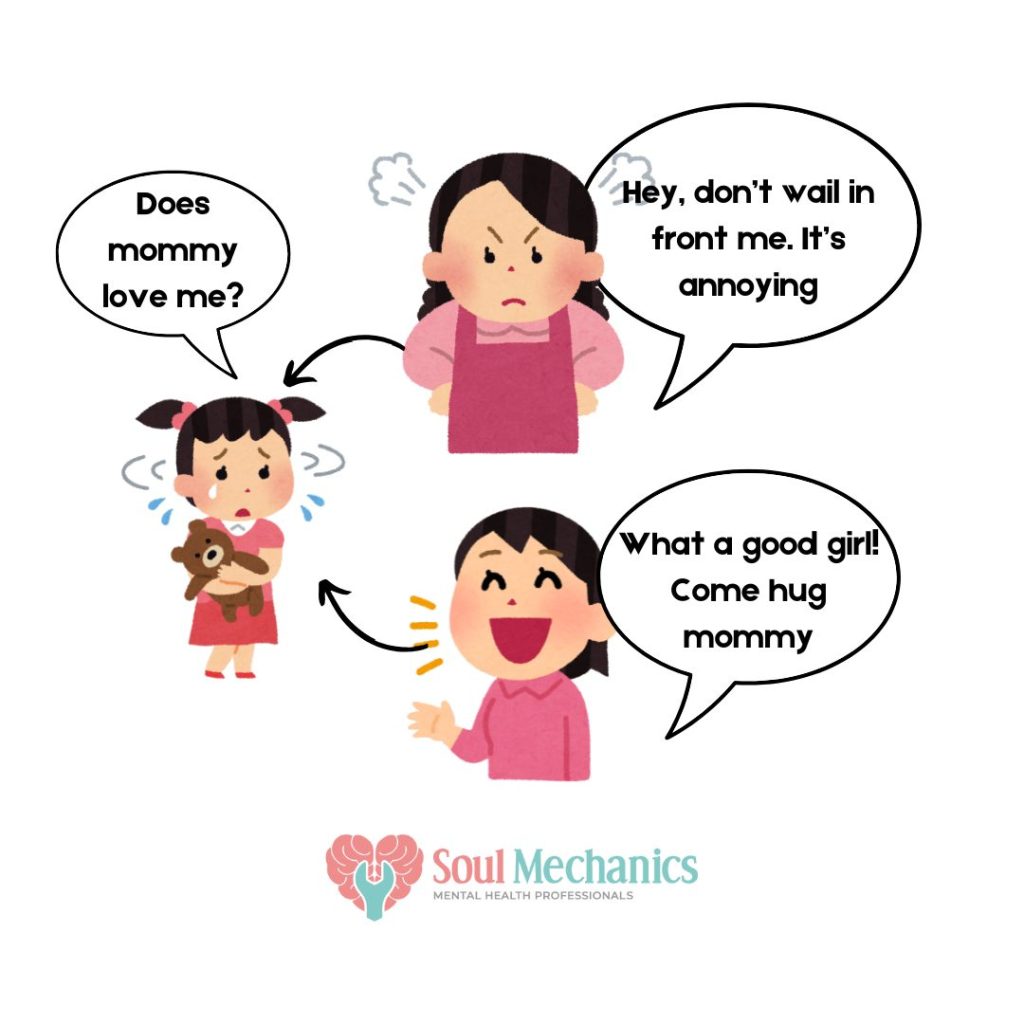
Experiencing abandonment or sudden loss, whether in childhood or later life, can also create a lingering fear of rejection. If a loved one left, passed away, or withdrew suddenly, the person may have learned to expect loss as a common outcome, even in happy relationships. This can lead them to constantly anticipate being left, no matter how stable things seem. These experiences can repeat in subsequent relationships, creating a cycle of fear and a deep need for reassurance.
Low Self-Worth and Fear of Not Being “Good Enough”
Individuals with anxious attachment often struggle with self-worth, feeling that they are not truly lovable or good enough. This belief can lead them to worry that their partner might leave if they “find someone better.” This lack of confidence makes them crave validation to counter their internal fear of inadequacy.

What Not to Do When Dating Someone with Anxious Attachment
Do Not Dismiss Their Feelings

Telling them to “stop overthinking” or “calm down” may seem like a quick fix. However, it often invalidates their feelings and can make them feel more isolated. Instead, acknowledge their feelings and validate their concerns, even if they seem exaggerated.
Avoid Ghosting or the Silent Treatment
When someone with an anxious attachment experiences a sudden lack of communication, it can feel devastating. Going silent, especially during a conflict, can feel extremely painful for an anxiously attached partner. Instead, if you need space, communicate it clearly instead of disappearing to reduce the risk of them feeling abandoned. For example, communicating “I need some time to process things and will reach out later” can go a long way.

Do Not Overpromise to Calm Their Fears
It can be tempting to make big promises to reassure them temporarily, but overpromising may create false expectations. Instead, be honest about your intentions and what you can realistically provide in the relationship.
What to Do Instead to Support a Partner with Anxious Attachment?
Supporting someone with an anxious attachment style does not mean taking on all the responsibility for their feelings, but it does involve being mindful of their needs. Here are some ways to help them feel more secure without compromising your well-being.
Offer Consistent Reassurance
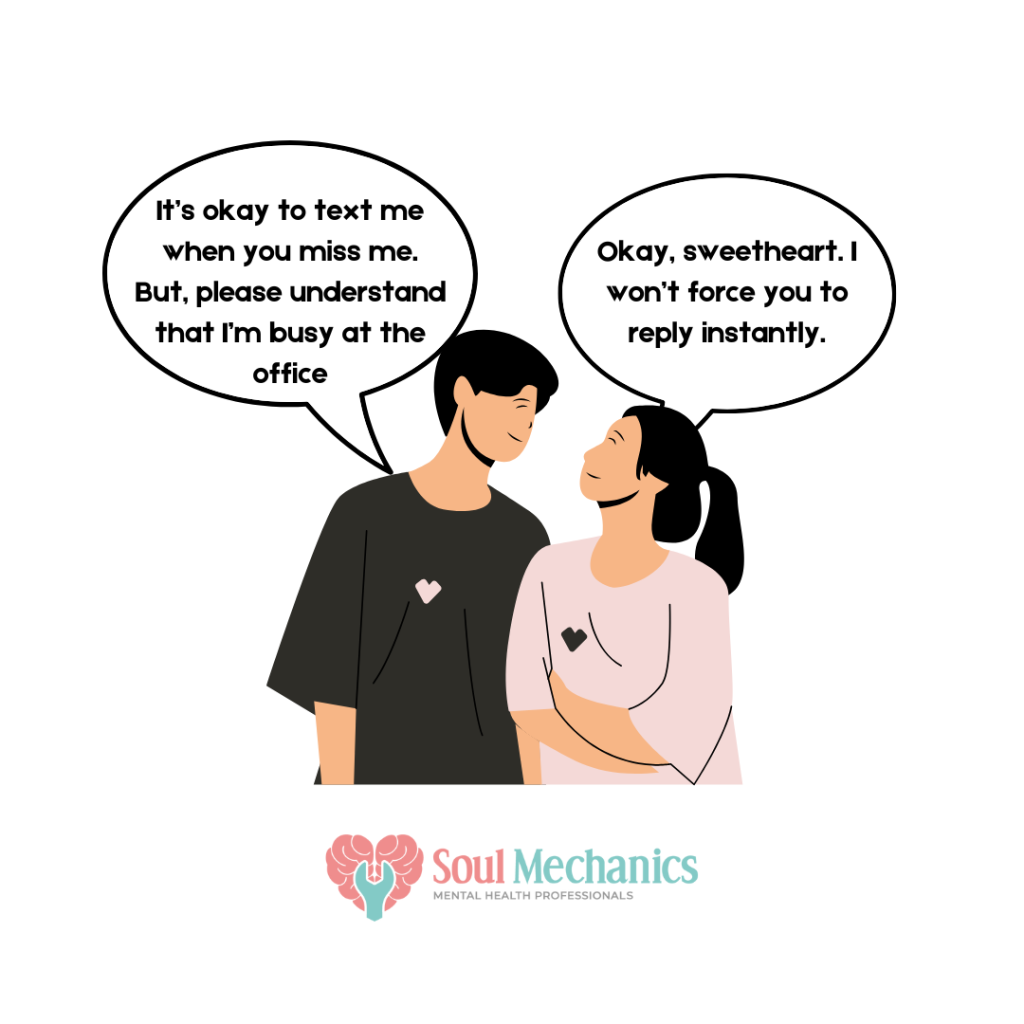
One of the most helpful things you can do is provide gentle, consistent reassurance. Let them know you are there for them and value the relationship. This does not mean you need to reassure them constantly, but regular affirmations of love and commitment can go a long way in helping them feel secure.
Embrace Patience and Empathy
Patience goes a long way in a relationship involving anxious attachment. Try to understand where your partner’s feelings are coming from and approach situations with empathy. Building security will not happen overnight, but small efforts will add up.
Communicate Openly About Your Needs and Feelings
Individuals with anxious attachment styles are often hyper-aware of their partner’s mood and behaviour changes. If you are having a rough day at work or feeling distracted, it will be helpful to let your partner know so they do not interpret it as a sign that something is wrong in the relationship. This helps your partner manage their anxiety and prevents them from jumping to conclusions.

Set Boundaries with Compassion
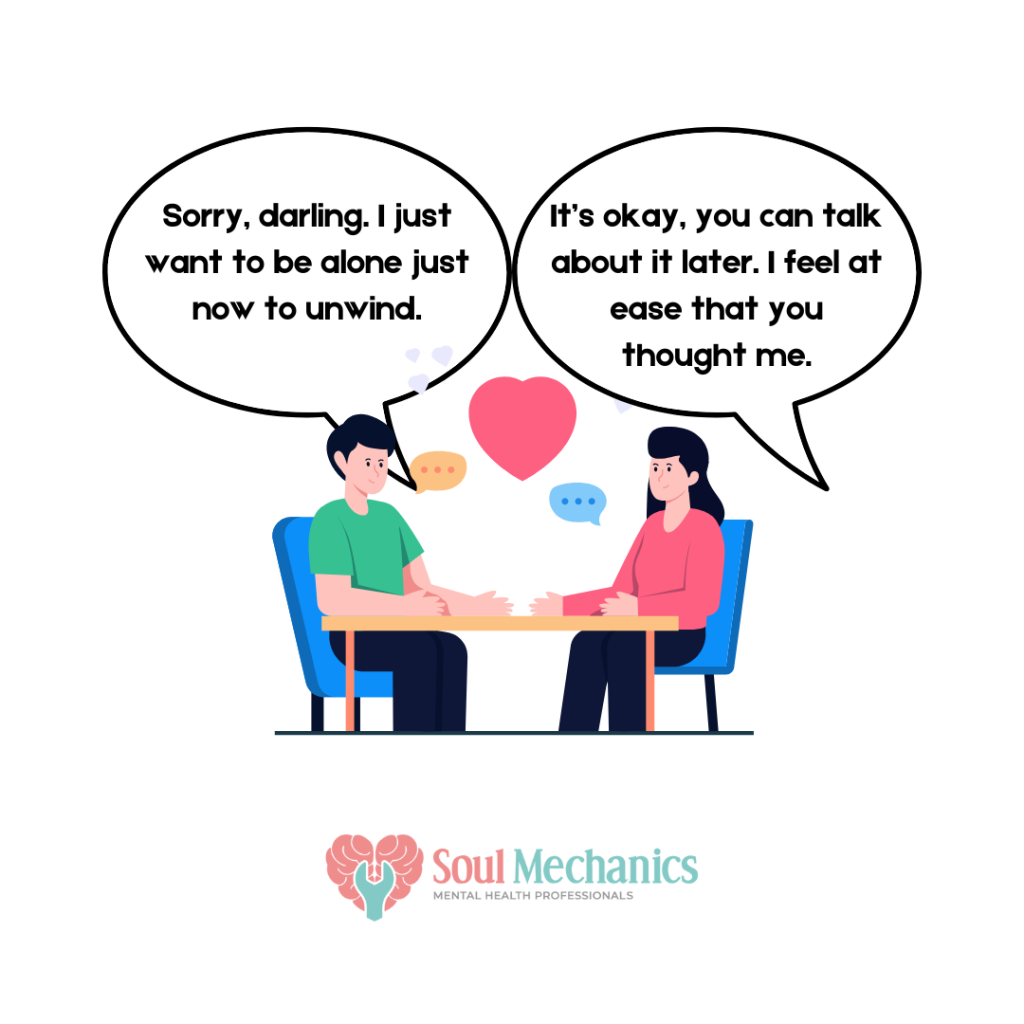
Boundaries are key to any healthy relationship, especially when one partner has an anxious attachment. Expressing your needs does not mean you are rejecting them or you do not care; it means you are balancing your needs with theirs in a way that is fair to both of you. You can say, “I love spending time with you, but I also need some time with friends. I will call you later to catch up.” This way, you are reminding them of your commitment while still having your personal space.
Encourage Self-Soothing Techniques
While it is natural to want to comfort your partner, it is also essential for them to develop self-soothing strategies to manage their anxiety. By learning these skills, they can handle their emotions more independently, reducing pressure on the relationship. You can encourage your partner to engage in self-soothing activities such as journaling, mindfulness, or meditation. You can even suggest to your partner to reflect on what makes them anxious before reaching out for reassurance, which can help them process emotions without needing constant external validation.
Celebrate Small Wins Together
Acknowledging your partner’s efforts to work on their attachment style can be a powerful motivator. Positive reinforcement shows them you see their progress and appreciate it. Small steps (e.g., your partner waited a bit longer before texting or expressing their needs calmly) deserve recognition. You can say something reassuring like, “I noticed how calm you were when we talked last night. I know that took effort, and I appreciate it.” Small affirmations can encourage continued growth.
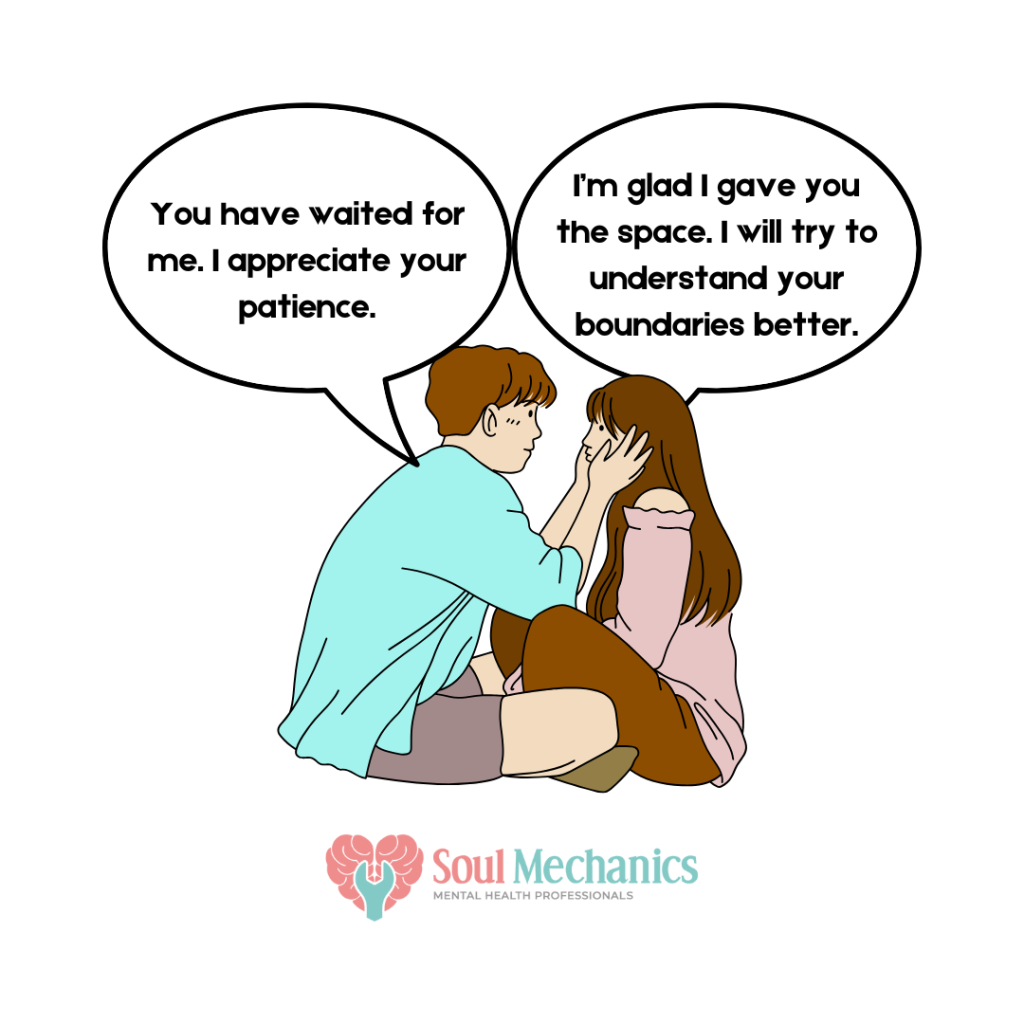
Consider Seeking Professional Help
Therapy can be a safe space to explore underlying insecurities and improve relationship dynamics. For your partner, individual therapy can offer tools for managing their anxious tendencies in the relationship. Couples counselling, on the other hand, can help both of you develop better communication skills and mutual understanding.
Reminder: If you feel that you are experiencing difficulties with the journey of your relationship with your partner, please don't hesitate to reach out to us at Soul Mechanics KD or Soul Mechanics Ipoh. Remember, seeking help is not a sign of weakness but strength!
Building a Strong Relationship Together
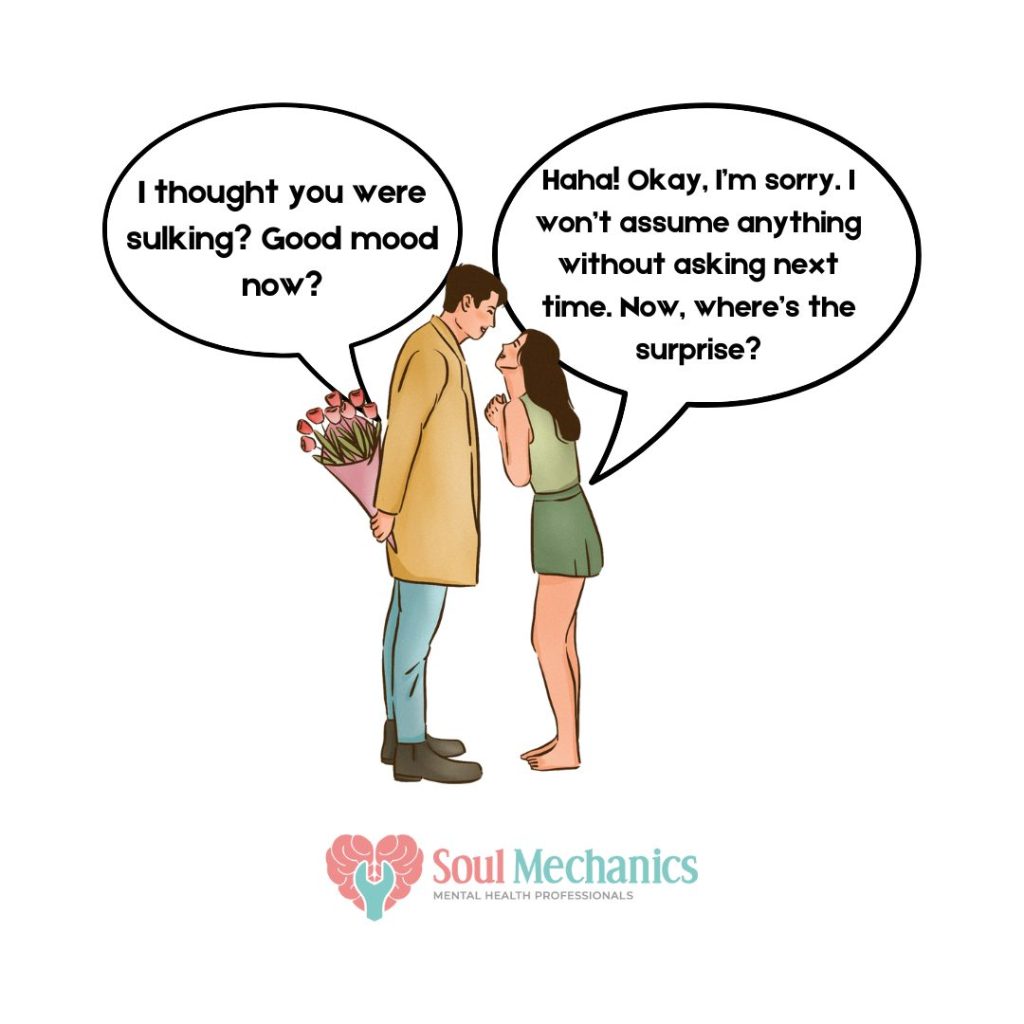
Loving someone with an anxious attachment style can sometimes feel challenging, but working together to build security, trust, and understanding is a meaningful journey. By approaching each challenge as a team, you and your partner can create a secure, trusting partnership that enriches your lives. Remember, while you cannot completely take away your partner’s anxieties, you can provide a stable foundation where both of you feel seen, respected, and valued. By fostering open communication, setting healthy boundaries, and encouraging growth, you and your partner can create a stronger, healthier, and more connected relationship.
If you enjoyed reading this, why not broaden the horizon of knowledge by learning about "Attachment Styles: Dating Someone With Avoidant Attachment"? You can read the blog here.
For more content related to mental health do follow us on our official Instagram.

